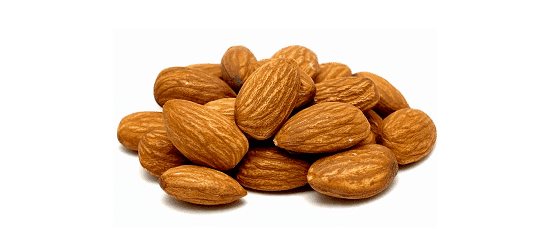Signs You Have A Zinc Deficiency: Zinc Deficiency & Benefits Explained

Our body is an amazing machine. Call it creation, call it nature, call it evolution. Whatever the origin, I feel the human body is a wondrous thing. It’s so intricate and so complex, and you need to have everything working together. Every particle of every organ needs to be doing its job, every second of every day. One of the elements you require is a trace mineral called zinc, and this post is all about signs that you may have a zinc deficiency.
It’s estimated that 25% of the Earth’s population is at risk of being zinc-deficient. In truth, there probably are many of us who could seriously use a boost in our zinc levels, even if we’re not suffering from a critical-level deficiency. But you shouldn’t need it to become critical before you do something about it.
Lao Tzu in the Tao Te Ching writes: “Because the sage always confronts difficulties, he never experiences them.” That’s a good rule of thumb for life, and the same applies to mineral deficiencies. Take care of difficult things while they are less difficult. This way, you’ll be be spared from having to deal with the problems and issues which will undoubtedly stem from them later on.
What Happens If Your Zinc Is Low?

Making sure that you have enough zinc will help your body both inside and out.
Zinc is a mineral. It’s a chemical element (Zn) which is essential for optimal performance of different bioactivities and processes in the human body. There are a number of minerals which the body doesn’t store, and zinc is one of them. Because of that, these minerals ought to be consumed on a regular basis, whether through a balanced diet or a dietary supplement.
When your zinc levels are low, different areas in the body are affected. The common external issues have to do with skin, hair, and nails. Typical internal issues include problems with the gastrointestinal system, reproductive system, and immune system.
Even the central nervous system – which keeps us sharp and maintains our status as functioning human beings – could be affected. Just goes to show how important these minerals are, I suppose.
It takes a while for zinc deficiency to actually show up on tests, and it may also take time to diagnose it as such. That’s because it’s a trace mineral, so there are very low amounts of it in the body. This makes it more difficult to diagnose right off the bat. But it also means that it doesn’t take long to overcome it and balance it out once it is diagnosed. Let’s go a bit more in-depth and see what zinc deficiency can cause.
Weakening Hair And Nails

Having enough zinc in your body is essential for having a full head of hair.
Due to their keratin-based composition, hair and nails share some similar attributes. One such attribute is that they require zinc to look good, feel good, and stay strong. Your genetic makeup and lifestyle play a certain role here. So if your hair and nails are built stronger from the get-go, it will take longer for them to be affected. But zinc is an essential element, so chances are your body will catch up to the deficiency sooner or later and display some telltale symptoms.
If you’re shedding more hair than usual, or if you’re noticing your hair thinning irregularly or excessively. If you often witness white spots on your nails or see an increase in the formation of hangnails – these could all be signs that you do not have enough zinc in your system. Zinc strengthens hair and nails, and a lack of it will lead to weakening hair and nails.
Damaged Skin

Healthy skin helps keep you looking and feeling good.
Much like hair and nails, skin also makes great use of the protein substance called keratin. Along with collagen, it’s part of what gives skin its healthy look and feel, and also its elasticity. It helps the skin to better function as a barrier between the body and the outside world: staving off infections, keeping out foreign bodies, and performing other “stayin’ alive” duties.
Therefore, when the body is zinc-deficient, it leads to damaged skin because the skin has trouble keeping its structural integrity. There could be noticeable changes in the skin, such as cracks, eczema, and dermatitis. Also, if the skin is attempting to recover from a wound, it could take longer to heal or it could heal unevenly. This deficiency has also been linked to acne and rashes of different kinds.
Your skin is the largest and most external organ you possess. Having low amounts of zinc can be detrimental and can change more than just your outer layers.
Appetite Changes

Make sure that you get enough zinc so that you maintain a healthy appetite.
It really is thought-provoking, the effect that such minute amounts of elements or substances can have on the human body. The daily recommended amount of zinc for adults is between 8-11 milligrams, depending on the sex of the individual. Ideally, you should be getting this through your diet and through proper absorption of the food in your body. Ironically, a deficiency in zinc can lead to loss of appetite, which in turn could cause an even greater deficiency.
Appetite is stimulated (in part) by taste and smell, and those two senses may be impaired or disrupted in the zinc-deficient individual. When you have difficulties smelling properly, or when your taste center becomes disturbed, you can’t expect your appetite to just carry on as if all is well. The inability to adequately smell and taste one’s food may be cause for a decrease in the desire to engage in eating to begin with.
There is a psychological connection here as well, and researchers found that zinc deficiency can potentially increase stress and anxiety. If a person is anxious and stressed, it’s likely that they’ll experience appetite changes. As a result, they cannot focus on eating right and giving the body what it needs.
Treating anorexia patients with a daily dose of orally-administered zinc yielded promising results in trials. The results showed that consumption of zinc helped patients to increase their body mass.
Cognitive Or Psychological Changes

Our physical and emotional health are strongly linked.
Cognizance is all about how we see the world around us and process information in order to arrive at our view of ourselves and of reality itself. Cognitive abilities span perception, retention, attention, learning, and the act of thinking in and of itself. Decreased amounts of zinc can mess with your mind and your chemical balance. It can keep you from partaking in previously-pleasurable activities or even feeling joy and happiness.
The connection between the brain and the body is a strong and ancient one. An insufficient amount of a trace minerals like zinc, and suddenly you may find it difficult to connect or remember certain things. You might also find it hard to spontaneously arrive at the proper word to use when you are engaging in conversation. Severity varies as a matter of course, and it’s not just about zinc. But lack of it does seem to contribute to changes in your cognizance and behavior.
As mentioned, stress and anxiety can be affected by the presence of zinc in the individual’s system, or by lack of it. Supplementing zinc in anxious human subjects showed that once levels of zinc normalized, there was a reduction in symptoms. In some cases, zinc supplementation has also been used for treating depression. Researchers agree that more studies are needed to discover the underlying biological mechanism of zinc’s effect on the psyche.
Digestive Irregularities
Another common symptom of zinc deficiency is digestive irregularities which increase in frequency and severity. The gut is a source of much healing and ailing, immunity and susceptibility, proper digestion or diarrhea. Your gastrointestinal system could be the first to get hit, once the deficiency starts to become more pronounced.
But don’t make the call just yet, Flatulent Phil! Because the gut is so closely related to many diseases, conditions, disorders, and deficiencies, it’s not that easy to diagnose a zinc deficiency based on this information alone. Your physician will have to get a more comprehensive view of your history and current state before making the jump and arriving at that conclusion.
How To Address A Zinc Deficiency Safely
Zinc deficiency symptoms may “mimic” the symptoms of a different condition or deficiency (some vitamin deficiencies, for example, can closely resemble that of zinc). So, it is best if you pinpoint the issue by seeing a physician and getting your blood or urine tested. There is a chance that the results will not be definitive at first, and that the good doc will order a different set of tests to determine the existence and/or severity of a zinc deficiency in your system.
Once you know that you need more zinc in you, you can then determine how to address a zinc deficiency safely. There is a short and long-term strategy that should be implemented, in conjunction with your physician or dietitian. In the short term, you can take supplements. In the long term, it should be your diet which helps your zinc levels stay on point. This is because taking too much zinc can interfere with the absorption of copper (another important mineral), and that opens up a whole other can of worms.
What Are Foods High In Zinc?

Nuts such as almonds are rich in zinc.
Zinc appears naturally all over the place: land, sea, and air. Some land has more zinc than others, and the crops they yield are richer in zinc as a result. Quality of soil aside, there are foods which are more abundant in the element than others, and this is a quick scan of some of them:
- Oysters and other seafood (octopus, lobster, clams)
- Grass-fed beef and other red meats
- Nuts, cashews, pumpkin seeds
- Hummus and tahini
- Milk and cheese
- Oatmeal
There is a catch: absorption. Just because you send foods high in zinc down your gullet, doesn’t mean your body absorbs it all properly. There are different chemicals and processes which hinder the absorption of zinc in the body, making its consumption less effective. Animal protein increases absorption, but plant-based protein may decrease it. You’ll need to consume a balanced diet to be sure you’re getting enough of everything your body requires.
There is another catch: zinc toxicity. Just because you want to prevent a deficiency, doesn’t mean you should consume too much zinc regularly. That’s no good either, because moderation is key here. Zinc overdosing can lead to a kind of toxicity and cause symptoms which resemble those of a deficiency: stomach issues, taste issues, and flu-like fatigue.
Conclusion
The origin of the word ‘zinc’ is not exactly clear. It was so named by the Swiss-German alchemist Paracelsus, who practiced medicine, alchemy, and astrology during the time of the Renaissance.
Whatever the origin, later scientists managed to further isolate it, study it in-depth, and discover it everywhere on the planet, even inside our bodies. Zinc is ranked 24th on the list of “most abundant elements on Earth”. It’s the second-most common trace mineral in the human body, right after iron.
In the case of vitamins and trace minerals, I feel that food should be the number one go-to cure. I’ve written this saying many times before, and I will continue to do so in the future: let thy food be thy medicine. Your regular diet is one of the best indicators and predictors of overall health. When you are getting enough of everything from your diet, you won’t develop deficiencies and won’t need to mitigate any issues down the line. Obviously you could fall ill to something or develop a condition anyway, but that is the nature of the world.
Zinc is essential for our proper development, and a lack of it is not something you want to deal with. As mentioned, it’s posited that up to a quarter of the world’s population is zinc-deficient to some degree. As I see it, that statistic is more than enough reason to get on top of things, incorporate zinc and other trace minerals into your diet consciously, and get those numbers back up. Get moving, people! That bowl of oatmeal isn’t gonna eat itself.


